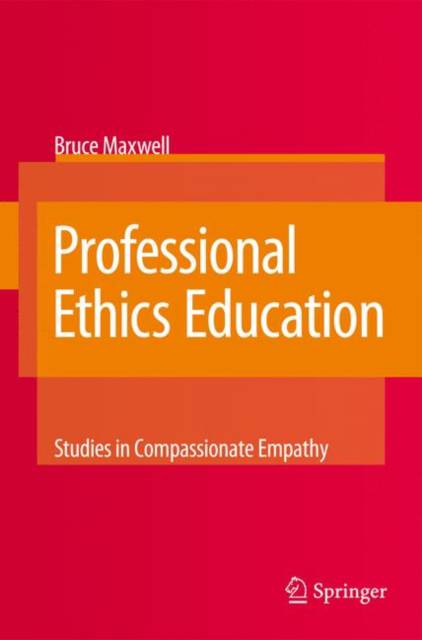
- Afhalen na 1 uur in een winkel met voorraad
- Gratis thuislevering in België vanaf € 30
- Ruim aanbod met 7 miljoen producten
- Afhalen na 1 uur in een winkel met voorraad
- Gratis thuislevering in België vanaf € 30
- Ruim aanbod met 7 miljoen producten
Zoeken
€ 167,95
+ 335 punten
Uitvoering
Omschrijving
1. 1 Practical Ethics Education at an Impasse Why is some practical ethics training a requirement of nearly all programmes in higher education? The short answer is that it is thought to be conducive to ethical decision-making and ethical behaviour. In recent years, the received idea that competency in moral reasoning implies moral responsibility "on the ground" has been the subject of critical attention. Today, researchers in moral education widely regard moral reasoning as but one among at least four dimensions of moral dev- opment alongside moral motivation, moral character, and moral sensitivity (Rest, 1986). Reflecting these changes, educationalists in the diverse fields of medicine, education, business, and applied ethics can now be found openly questioning how to take practical ethics education beyond the development of skills in moral r- soning. Frequently topping the list of suggested improvements is to provide s- port for empathic capacities of response. This work gives this proposal the systematic attention that it deserves. Contemporary applied ethics, and by extension practical and professional ethics education, can be considered an offshoot of the broad philosophical doctrine of moral realism. Moral realism takes many forms but in broad outline it is an est- lished meta-ethical position that emerged as a seemingly attractive alternative to another family of established philosophical positions that sometimes goes under the name of "expressivism".
Specificaties
Betrokkenen
- Auteur(s):
- Uitgeverij:
Inhoud
- Aantal bladzijden:
- 198
- Taal:
- Engels
Eigenschappen
- Productcode (EAN):
- 9781402068881
- Verschijningsdatum:
- 1/04/2008
- Uitvoering:
- Hardcover
- Formaat:
- Genaaid
- Afmetingen:
- 156 mm x 234 mm
- Gewicht:
- 480 g

Alleen bij Standaard Boekhandel
+ 335 punten op je klantenkaart van Standaard Boekhandel
Beoordelingen
We publiceren alleen reviews die voldoen aan de voorwaarden voor reviews. Bekijk onze voorwaarden voor reviews.








